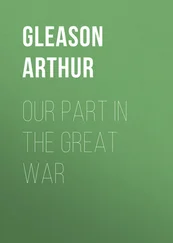Ernest Buley - Glorious Deeds of Australasians in the Great War
Здесь есть возможность читать онлайн «Ernest Buley - Glorious Deeds of Australasians in the Great War» — ознакомительный отрывок электронной книги совершенно бесплатно, а после прочтения отрывка купить полную версию. В некоторых случаях можно слушать аудио, скачать через торрент в формате fb2 и присутствует краткое содержание. Жанр: foreign_antique, foreign_prose, на английском языке. Описание произведения, (предисловие) а так же отзывы посетителей доступны на портале библиотеки ЛибКат.
- Название:Glorious Deeds of Australasians in the Great War
- Автор:
- Жанр:
- Год:неизвестен
- ISBN:нет данных
- Рейтинг книги:4 / 5. Голосов: 1
-
Избранное:Добавить в избранное
- Отзывы:
-
Ваша оценка:
- 80
- 1
- 2
- 3
- 4
- 5
Glorious Deeds of Australasians in the Great War: краткое содержание, описание и аннотация
Предлагаем к чтению аннотацию, описание, краткое содержание или предисловие (зависит от того, что написал сам автор книги «Glorious Deeds of Australasians in the Great War»). Если вы не нашли необходимую информацию о книге — напишите в комментариях, мы постараемся отыскать её.
Glorious Deeds of Australasians in the Great War — читать онлайн ознакомительный отрывок
Ниже представлен текст книги, разбитый по страницам. Система сохранения места последней прочитанной страницы, позволяет с удобством читать онлайн бесплатно книгу «Glorious Deeds of Australasians in the Great War», без необходимости каждый раз заново искать на чём Вы остановились. Поставьте закладку, и сможете в любой момент перейти на страницу, на которой закончили чтение.
Интервал:
Закладка:
Their work was equally as dangerous as that of the fighting soldier, for in those first days of fighting at Gaba Tepe, the Turks made no attempt to respect the Red Cross, though their conduct in this respect improved later on. To advance into the line of fire with a stretcher, under the supposed protection of the Red Cross, was to court a speedy death, and yet there are countless instances of this being done.
One incident, for which a number of witnesses will vouch, shows that this disregard of the Red Cross was part of their training at the hands of their German tutors. A German officer who was lying badly wounded in the firing line attracted the attention of an Australian Red Cross man, who bent over him to render assistance. The return was prompt; the wounded man drew his revolver and shot his benefactor. With a roar of anger, an Australian soldier rushed forward and drove his bayonet time after time through the body of the ungrateful wretch.
The Australian Engineers, who landed about midday on that momentous Sunday, were soon busily at work under the heavy fire directed upon the landing-place. As if by magic, practical paths appeared leading up the cliffside, with sandbag protections; and thus a means of conveying stores and ammunition to the trenches above was at once improvised. The landing-place was improved, and means of getting guns and heavy stores rapidly ashore were contrived with marvellous rapidity. Soon Brighton Beach assumed the appearance of a busy little port, with boats coming and going continually, while shrapnel burst around them and threw up the sand in showers on the beach.
The Australasians completely lost their hearts to the sailormen, with whom they were working here. "I was glad to get out of the blooming boats," said one Australian when recounting his experiences; "but those Jack Tars went to and fro under the shells and bullets as if they never knew of them. You ought to have seen the little middies in charge of the boats; young boys that might have been larking at school. Just boys with round rosy faces, but so keen. When I have a boy I mean to put him in the Australian navy. It makes fine men of them."
The Australasians excited a corresponding admiration from their British sailor friends, not only for the way they fought, but for their whim of bathing under shell fire. Brighton Beach is an ideal place for a swim, barring the small circumstance that several Turkish batteries concealed in the broken ground had the range of the place, and devoted a flattering attention to it. But this did not deter the Australasians, when their time came for a rest, from trying the tonic effect of a plunge in Gallipoli waters.
One man would be stationed on the shore, to give warning, and a score would take to the water together. "Duck," the signalman would cry, as the whining groan of shrapnel shell was heard. Down would go their heads all together, and up their heels, to disappear under the water just in time to avoid the spray of bullets that tore the smooth surface into foam. Then the sailors, watching the fun through their glasses, would roar with laughter; and the gasping Australians would show their heads again, to take breath for the next plunge. It sounds reckless, but the practice continued, though many men subsequently lost their lives through it.
But these amusements were not possible in the few days that followed the first landing. Within twenty-four hours of the appearance of the first warship off Gaba Tepe, the enemy had brought an army of 25,000 men to hold the strongly-prepared positions that commanded the heights above it, and to attempt to drive the Australasians from the precarious footing they had obtained with so much daring. Furious attacks were made all along the line, the object being to prevent the invaders from digging in, and establishing themselves. The 3rd Brigade, which had led the way up the cliffs, and suffered most severely in the initial fighting, had a very hot time of it. They stood firm against repeated bayonet attacks, as did the whole line; and the work of entrenching went on steadily, in spite of the brave fury with which the Turks repeated their attacks.
The warships gave splendid help, shelling the main bodies of the defenders wherever they showed on the ridges. The Queen Elizabeth was conspicuous in this work, standing off so far to sea that she was hardly discernible, yet landing her gigantic shells with amazing accuracy among the ranks of the Turks. The havoc played by one of these shrapnel shells may be imagined when it is considered that they weigh three-quarters of a ton, and contain 20,000 bullets. Nothing impressed the Australasians more than the hideous din made by the explosion of one of these gigantic shells, and the scar on the hillside that showed after its bursting.
It was under the supporting fire of the warships that the Ninth and Tenth Infantry made a most gallant bayonet charge on the 26th, to drive the Turks from a ridge beyond Pope's Hill, which commanded the whole Australian position, and permitted machine guns to enfilade the landing-place. They advanced in open lines through the scrub, making dashes of a hundred and fifty yards at a swift run, and then dropping to take breath for another charge. Twice they drove the Turks from the position, and were in turn driven back; the third time they stayed there.
The 8th Battalion (Victoria) had to bear the brunt of repeated charges by bodies of Turks who far outnumbered them and came charging with shouts of "Allah! Allah!" The losses sustained by the enemy in these charges were enormous. The 4th (New South Wales) made one dashing bayonet charge that carried them right through the Turkish camp, but beyond they came into an area commanded by machine guns, and got off again, having lost heavily and fought most gallantly.
These are only some of the incidents detailed out of the confusion of the second day's fighting. By the end of that day the Australasians recognized that they were there to stay. A conversation in one of the advanced trenches bears quaintly upon their certainty on this point. One by one the men gazed through a periscope at the prospect commanded from the height they occupied. "Fair country for stock," remarked one, as he yielded his place. "Take a lot of clearing," commented another. The third was a miner. "Here," he said after a long inquisitive look around, "chuck me an entrenching tool; I'm going to try for a prospect."
Yes, they were there to stay right enough; until their duty should call them to fight the cause of right and freedom somewhere else. Already a lamentably large number of them were there to stay until the last trump shall sound the call to them to arise and receive the reward the hereafter holds for brave and noble men, who have laid down their lives that justice and goodness may not perish from the face of the earth. But dead or alive, the Australasians were there to stay, until such time as they should receive the command to retire.
Already they had made history after a fashion which is testified in a letter written about that time by General Birdwood, who had charge of the whole of the Gaba Tepe operations, to Sir George Reid, the High Commissioner in London for Australia. The General wrote: —
"The capture of the position we at present hold will, I feel sure, go down to history as a magnificent feat of the Australians and New Zealanders. Our one chance of success was to hurl ourselves on the position on a broad front, and just insist on taking it. That is just what we succeeded in doing. We tried our best to effect a surprise by landing at night, though this was necessarily a risky matter, but our one great chance. Our surprise, I fear, was by no means complete, as owing to the moon setting late, our ships were necessarily silhouetted against it as we approached, and we were consequently met with a heavy fire whilst still in the boats. Nothing, however, would stop the men, who just raced ashore, and up and all over this most difficult scrub-covered hill, of which we now hold a portion. In their great zeal, I am sorry to say, some detachments advanced too far, getting right away from the flanks, while the enemy held the centre in strength, and there were, I fear, completely cut off, which made our losses heavy. That, however, could not possibly be avoided, for had commanding officers and brigadiers waited to form up their commands as they normally would have done, we should probably never have captured the position at all, which great dash alone was able to take."
Читать дальшеИнтервал:
Закладка:
Похожие книги на «Glorious Deeds of Australasians in the Great War»
Представляем Вашему вниманию похожие книги на «Glorious Deeds of Australasians in the Great War» списком для выбора. Мы отобрали схожую по названию и смыслу литературу в надежде предоставить читателям больше вариантов отыскать новые, интересные, ещё непрочитанные произведения.
Обсуждение, отзывы о книге «Glorious Deeds of Australasians in the Great War» и просто собственные мнения читателей. Оставьте ваши комментарии, напишите, что Вы думаете о произведении, его смысле или главных героях. Укажите что конкретно понравилось, а что нет, и почему Вы так считаете.












